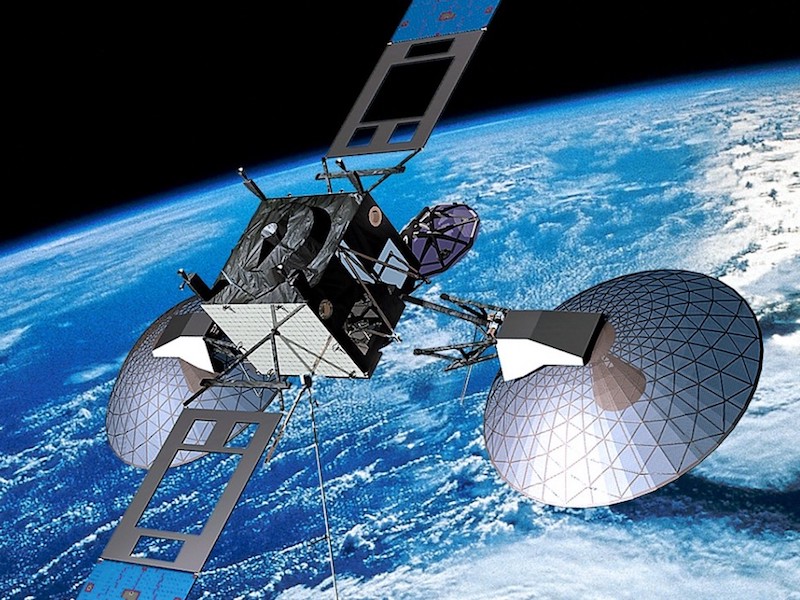The inaugural Space Enterprise Summit convened on Wednesday, June 26, 2019. Co-sponsored by the State Department and the Department of Commerce, the two-day event brought together government, diplomatic, industry, and scientific leaders from the U.S. and around the world to discuss issues and approaches to building the “trillion-dollar economy” in space.
Day one began with introductory remarks by Andrea Thompson, Undersecretary for Arms Control and International Security. She stressed an unexpected point: the government wants a light touch regulatory scheme for commercializing space. (Yes, really!) She also discussed ways in which U.S. leadership in space aids diplomatic efforts.
Next, NASA Administrator Jim Bridenstine said that NASA is listening to industry to further commercial efforts in space, including beyond the ISS. He noted that the U.S. has some 700 agreements worldwide with various partners, and discussed the need to consider new commercial habitats in space, with a goal of multiple orbiting space stations. Lastly, he brought up the intriguing notion of collaborating with commercial partners for deep space ventures on Mars.
The first panel discussed commercial perspectives relating to the new space economy. Ron Lopez of Astroscale discussed the importance of space debris removal and developing an on-orbit economy that includes on-orbit servicing. He stressed the need for creating a permissive regulatory environment to give investors the confidence (as well as the profits) to provide the financial resources necessary to trigger even more growth. This was echoed by other speakers throughout the event.
The second panel featured the perspective of international agencies/governments on collaboration with commercial partners. Wayne Monteith, the Associate Administrator at the FAA, described the often impossible task of finding the “sweet spot” in the amount and type of commercial space regulation needed to satisfy all participants. Koichi Wakata, Vice President of JAXA, noted that Japan is collaborating with private partners not only in LEO, but with efforts at lunar exploration as well. Etienne Schneider, Deputy Prime Minister of Luxembourg, suggested that ownership of space resources must be clear in order to stimulate and spur follow-on investments. He sees Luxembourg as a European hub for space development and feels that the government needs to be a risk taker to give confidence to investors. When queried by one space start-up representative as to how commercial players should approach agencies to establish a good relationship, he demonstrated risk-taking (and inspired laughter) by offering his personal number.
Day two of the Summit began with a discussion of the role of the arts in promoting space exploration, including classics such as Star Wars and Star Trek. Data sharing was on the menu in a subsequent panel. Representatives from the Space Data Association and Japan’s National Space Policy Secretariat discussed the need to disseminate data regarding space situational awareness and space traffic management.
A major feature of the Summit was the panel on long-term sustainability, with leaders from the diplomatic, defense, and agency sides of Canada, Brazil, the U.K., Israel, and the U.S. Several recurring themes emerged during the discussion:
- sustainability in space applies not only to state actors, but commercial ones as well;
- a practical, risk-based approach to sustainability is necessary;
- the 21 recently adopted COPUOS guidelines, which incorporate suggestions from both state actors and industry, are the lynchpin of sustainable practices;
- the COPUOS guidelines describe the “what” and “why” of sustainable practices, but not necessarily the “how”; and finally
- states need to show how they’re implementing the COPUOS goals.
The audience also heard how emerging space nations are participating in “new space.“ The efforts of Australia, New Zealand, Luxembourg, and the United Arab Emirates were described in detail. Australia, for instance, is steadily increasing its budgetary outlays to its domestic space agency. New Zealand has been greatly aided and inspired by the recent success of Rocket Lab, a small U.S. launch company gaining momentum with launches from New Zealand.
The UAE is making numerous moves to establish itself as a regional space concern. Talal Al Kassi, Senior Advisor to the UAE Space Agency, recited a list of audacious goals and accomplishments, including Earth observation satellites, an astronaut program, and a Mars habitat module. The UAE is determined to diversify their economy, to be a positive role model, and to achieve cooperation with other Arab nations entering the new space economy.
The nature of the relationships among business/industry and government was an important topic of discussion, moderated by Mike Gold, Vice President at Maxar. Caryn Schenewerk, Senior Director for Spaceflight Policy at SpaceX, noted that growth in the launch sector is a positive sign, and stressed the need for performance-based regulations for launch and re-entry.
Cindy Martin-Brennan, of the National Lab ISS, predicted that research and development in LEO will be a primary driver for the commercial space economy. However, a major concern is intellectual property (IP) rights. The U.S. government has march-in rights with respect to technologies developed in the ISS, but has never exercised them. Commercial players are concerned that they will not truly own their own IP, and the government is leery of the effect this has on collaboration.
The Summit concluded with a panel discussion of the role NGO partners have and will continue to play in the sustainable development of the new space economy. The panel highlighted NGO input on the 21 COPUOS guidelines and reinforced the need for the international community to abide by these new, more formal modes of behavior. If the lunch and coffee break discussions were any indicator of the level of interest in and success of the inaugural Space Enterprise Summit, then subsequent Summits will be eagerly awaited.

